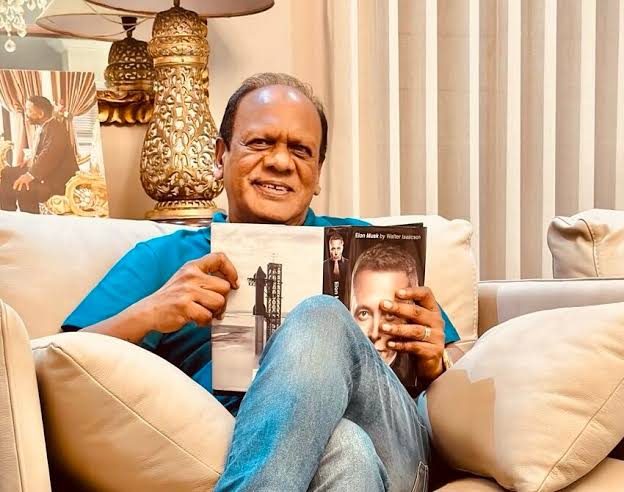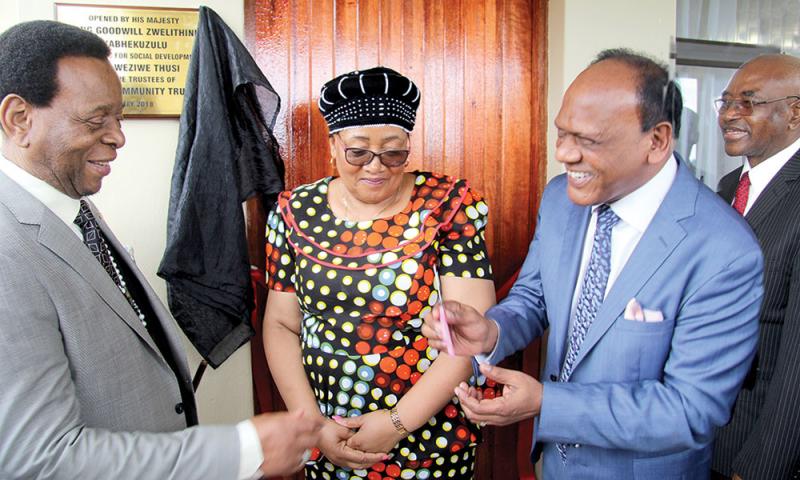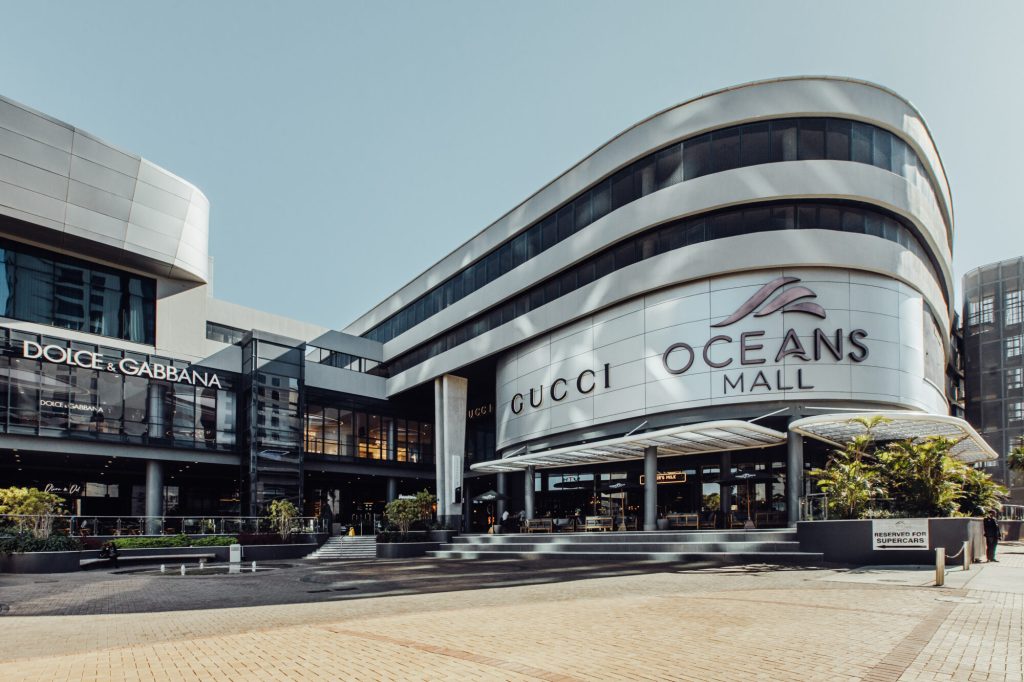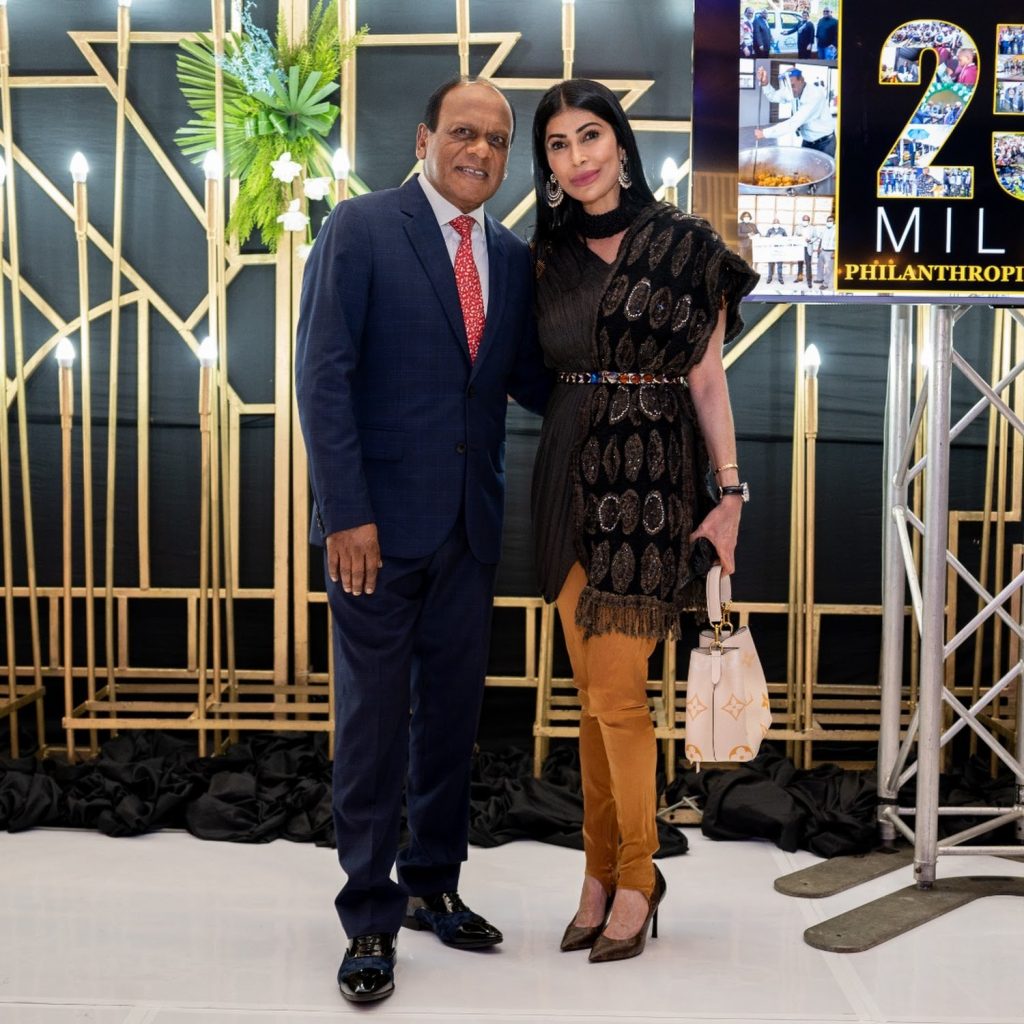(October 9, 2024) Vivian Reddy’s first memories are of the narrow, dusty streets of Greenwood Park, Durban. Born in 1953 into a family of nine children, his father, a schoolteacher, earned a meager R3 a month, barely enough to sustain them. Young Reddy saw the constant financial struggle up close, but it was his father’s unwavering dedication to integrity and service that left a mark on him. “Service to humanity is the best work of life,” his father would say—a mantra that guided Vivian Reddy through his life and business.
Hailing from KwaZulu-Natal, Vivian Reddy wears many hats as the founder and chairman of Edison Power Group, a heavyweight in the electrical industry. His business interests include casinos, healthcare, finance, and property development. From being raised in poverty to accumulating an estimated net worth of R1.9 billion, Reddy has come a long way, and been instrumental in shaping the post-apartheid Durban story, as well as the legacy of the Indian diaspora in South Africa.
At 71, Reddy is deeply committed to philanthropy in South Africa, supporting initiatives like the Orphans of AIDS Trust Fund and contributing to projects like the Wingen Heights Secondary School and a clinic in eThekwini Metropolitan Municipality.

Vivian Reddy
Humble beginnings
Growing up in apartheid South Africa meant that Reddy, as an Indian, was subject to the institutionalized racial segregation that defined the country from 1948 to 1994. Apartheid confined non-white citizens to specific areas, dictated their education, and barred them from numerous career opportunities. Indians in South Africa, initially brought to the country as indentured laborers by the British in the 19th century, were politically and socially marginalized, despite being very wealthy and contributing significantly to the economy as traders, professionals, and workers.
Vivian Reddy’s parents were committed to education as a way out of poverty. His father’s modest salary from his job as a schoolteacher barely provided for their large family, yet he instilled in Reddy a deep sense of responsibility and service. His mother, a homemaker, managed their household and nurtured her children with strength and patience. “We didn’t have much, but my parents made sure we had the right values,” Reddy recalls. These early values of integrity and service would shape Reddy’s path.
His first job, and confronting apartheid
Reddy’s first job as an electrician came after completing his education at Sastri Park Secondary School. Working at an electrical company in Pietermaritzburg, he quickly rose to branch manager. But apartheid’s discrimination soon reared its head. At a company Christmas party, the management arranged two separate celebrations—one for white workers and one for non-white workers. Outraged by the segregation, Reddy led the non-white workers into the whites-only celebration.
“I couldn’t just sit back and allow this injustice to continue,” Reddy says. His defiance, however, came at a cost. He was fired the following Monday. “Getting fired was painful, but it made me realize that if I wanted to succeed, I couldn’t rely on others to give me opportunities. I had to create my own.” That realization propelled Reddy into entrepreneurship.

Cutting the ribbon, Vivian Reddy with His Majesty, King Goodwill Zwetithini kaBhekuzulu, Premier of KZN, at the re-opening of the Lakehaven Child and Youth Centre in Durban. Photo: The Bugle
Building Edison Power: The Challenges of Being a Non-White Entrepreneur
In 1973, with just R500 and a borrowed bakkie (small truck), the Global Indian started his own electrical company, Reddy’s Electrical. The challenges were immense. Apartheid policies meant that government contracts were out of reach for non-white businesses, and private companies often preferred to work with white-owned firms.
Despite these barriers, Reddy was determined. He realized that his company’s name could be a hindrance in securing work, so he made a strategic decision: he rebranded the company as Edison Power. The name change gave him the credibility he needed to secure contracts with clients who might otherwise have been prejudiced against working with an Indian-owned business.
“People would ask for Mr. Edison,” Reddy recalls. “I would tell them he wasn’t available, but I could assist.” This clever rebranding opened doors, and Edison Power slowly started gaining traction in the industry.
The Big Break: Electrifying South Africa’s Townships
Reddy’s breakthrough came in the early 1990s when South Africa’s township electrification program was underway. Many white-owned companies refused to take on these projects due to safety concerns and political volatility. But Reddy saw it differently.
Edison Power was one of the first companies willing to take on the massive task of electrifying South Africa’s townships. “We were the only company willing to go into these dangerous areas,” Reddy says. “It was risky, but I knew it was our chance to prove ourselves.” Edison Power’s commitment to these underserved communities not only transformed the lives of millions but also positioned the company as a leading force in South Africa’s electrical industry. This bold move firmly established Reddy as a visionary businessman willing to take calculated risks for the greater good.
Diversifying His Empire

Oceans Umhlanga in Durban, owned by Vivian Reddy, known as ‘Dubai in Durban’, created over 1000 local jobs.
As Edison Power grew, so did Reddy’s ambitions. By the late 1990s, Reddy had expanded beyond electrical engineering and ventured into property development, real estate, and casinos. One of his most significant undertakings was the Sibaya Casino, a premier destination that became a cornerstone of his business portfolio.
The casino, situated near Durban, attracted major investment and created hundreds of jobs for local residents. Reddy’s ventures in casinos were not just about profits—they were about transforming the economic landscape of the region. The success of Sibaya Casino marked the beginning of his diversification into other high-value sectors.
Reddy’s most ambitious project to date is the R4 billion Oceans Umhlanga development, a luxury mixed-use property development that includes residential apartments, a hotel, and a shopping mall. This development has not only transformed Durban’s skyline but has also created thousands of jobs and brought international attention to the city. “I wanted to create something that would leave a lasting legacy,” Reddy says.
Mentorship from Nelson Mandela
One of the defining relationships in Reddy’s life was his mentorship under Nelson Mandela, South Africa’s first democratically elected president. Mandela’s guidance shaped Reddy’s approach to leadership and community impact. “Mandela taught me that success is meaningless unless you use it to help others,” Reddy reflects.
Vivian Reddy met Nelson Mandela during the post-apartheid era, when South Africa was undergoing massive social and political transformation. Mandela, who became the first democratically elected president of South Africa in 1994, sought to engage with and mentor influential business leaders across the racial spectrum to help rebuild the country after years of racial segregation and economic inequality.
Reddy, who had already begun making a name for himself as a successful businessman through Edison Power, caught Mandela’s attention through his bold efforts to electrify townships during the apartheid regime—a risky move that not only demonstrated Reddy’s business acumen but also his commitment to social upliftment. Their paths crossed as Mandela began to form relationships with key business figures who could contribute to the rebuilding of South Africa’s economy and infrastructure.
Mandela admired Reddy’s determination to succeed despite the restrictions of apartheid and recognized the impact Reddy’s work had on marginalized communities. Through their shared values of integrity and a commitment to improving the lives of others, the two developed a close relationship. Mandela would go on to mentor Reddy, shaping his views on leadership, philanthropy, and the importance of using success to uplift those around him. Mandela’s mentorship reinforced Reddy’s belief that businesses should be a force for good, and that personal success comes with a responsibility to uplift the less fortunate. This relationship would serve as the guiding principle for Reddy’s expansive philanthropic efforts.
We didn’t have much, but my parents made sure we had the right values. – Vivian Reddy
Philanthropy: A Commitment to Uplifting Communities
Reddy’s philanthropic work is as impressive as his business empire. He has donated more than R250 million to various causes, focusing on education, healthcare, and skills development. One of his most significant contributions is the establishment of Wingen Heights Secondary School, a state-of-the-art educational institution aimed at providing high-quality education to children in underserved communities.
Reddy has also heavily invested in healthcare initiatives, particularly in the eThekwini Metropolitan Municipality, where he funded clinics and medical centers to provide essential services to marginalized communities. “I believe that true success is about giving back to the community that helped you succeed,” Reddy explains.
In addition to education and healthcare, Reddy has sponsored multiple skills development programs, helping thousands of young South Africans gain the training and qualifications needed to improve their economic prospects.

Vivian Reddy with his wife
Legacy
Today, Vivian Reddy’s empire spans multiple industries, employing thousands of people across South Africa. .His son, Shantan Reddy, now plays a critical role in running Edison Power, ensuring the continuity of the family legacy. From Edison Power to Oceans Umhlanga, Reddy’s impact on South Africa’s economy is profound. But perhaps more importantly, his legacy of philanthropy and service continues to uplift communities across the country.
Reddy’s journey from a young boy growing up in apartheid-era Durban to one of South Africa’s most influential businessmen is a testament to vision, determination, and a commitment to service. “It’s not about how much you have; it’s about how much you give back,” Reddy says, a reflection of a life dedicated to leaving the world better than he found it.




